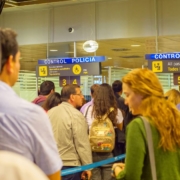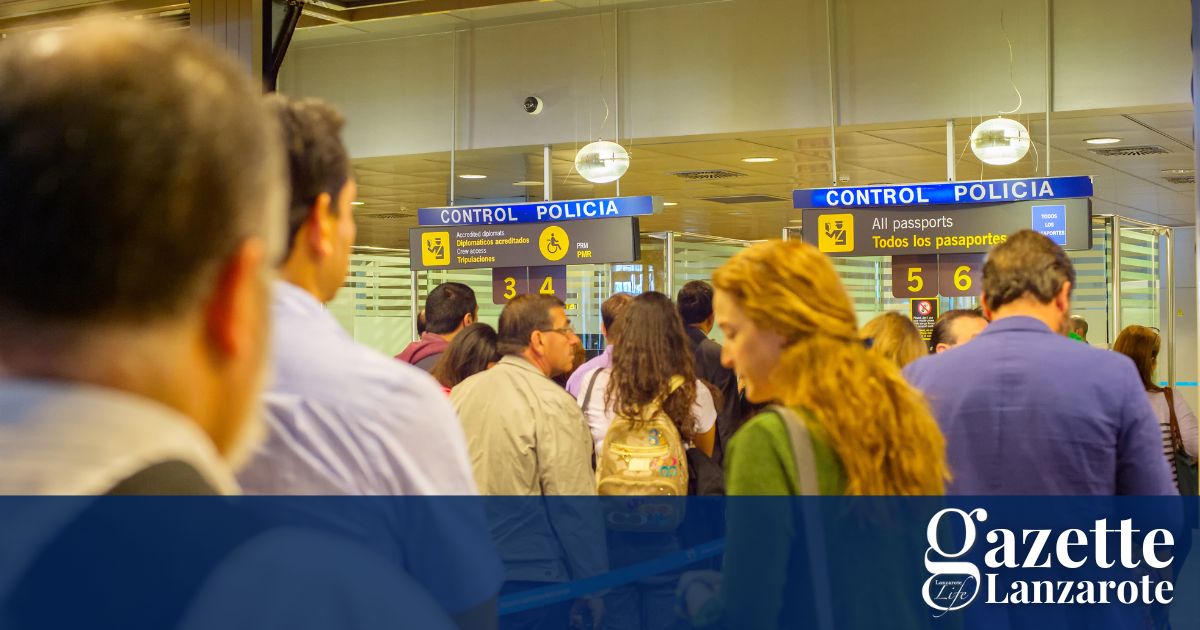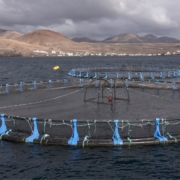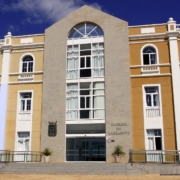There’s good news and bad news for winter arrivals at Lanzarote’s César Manrique Airport, as the EU announced the indefinite postponement of the EES (Entry/Exit System).
The EES had initially been scheduled to be brought in on November 10th and would have required all third-country nationals to be fingerprinted and have facial biometric scans upon arrival.
On Lanzarote, there were fears that this would add to the already-existing delays that have been caused by the shortage of staffing at border control desks and the reintroduction of passport stamping for third country nationals.
These delays have been regular occurrences since passport stamping was re-introduced in June, and stem from a failure to install adequate facilities to separate EU and non-EU passengers at the airport, as well as a lack of trained border officials.
However, in October the EU announced that the EES would be postponed “indefinitely” after Germany, France, and the Netherlands stated that their computer systems would not be ready in time for the November deadline.
The EU’s statement that the EES will “scan the fingerprints or take a photo of those crossing the border for the first time”, also suggests that the requirements for any future roll-out of the EES may be watered down. Previously, both fingerprinting and scanning were envisaged.
Experts now believe that, despite an initial suggestion that the EES may be delayed by just one week, it is unlikely to be introduced during 2024 at all and is more likely to be brought in “well into 2025”.
It also seems likely that it will be introduced in a phased manner, although no details of this are available yet.
The bad news for British travellers is that, while the EES remains on hold, physical stamping of third-country nationals’ passports will still be required. This lies at the root of the delays at Lanzarote’s airport and, unless more staff are contracted, queues are still likely to occur at busy times.











Leave a Reply
Want to join the discussion?Feel free to contribute!